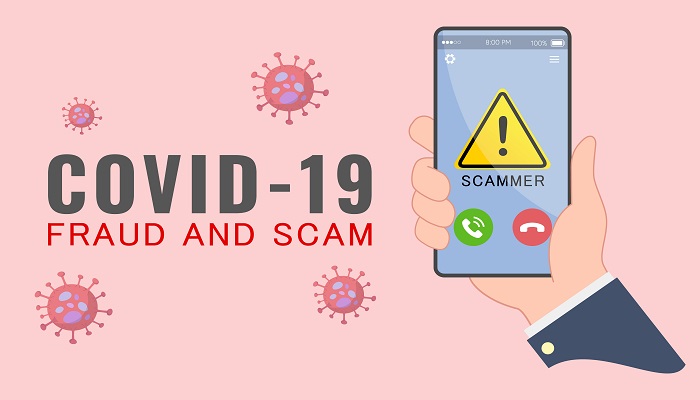
A recent report revealed that the IRS Criminal Investigation Division (CI) has witnessed a variety of Economic Impact Payment (EIP) scams and financial schemes decreeing to take advantage of many unsuspecting taxpayers. Scams related to COVID-19 aren’t just limited to stealing EIPs from taxpayers, they have extended to selling fake at-home test kits, cures, vaccines, pills, and advice on unproven treatments for COVID-19. To help you stay informed and steer you clear from such troubles, we discuss the three most common scams you should watch out for. Read on.
Related Blog: Basic Guide to File Your Tax Returns
1. Scams Around COVID-19 Vaccine, Cure, and Testing
The FTC has warned people in the USA about an increasing number of scams related to vaccines, treatments, test kits, cures, and even fake air filter systems designed to remove the coronavirus from the air in your home. There has also been an increase in phishing schemes utilizing keywords such as “coronavirus,” “COVID-19,” and “Stimulus” in varying ways. These schemes are blasted to millions of people in an effort to sell fake products to extract sensitive details such as financial information. If you receive a phone call, text, email, or letter with claims about any of these items— it may be a scam. Even if you fall prey to such scams, immediately approach an IRS tax attorney in Fort Worth, Texas for immediate damage control and problem resolution.
2. Fake COVID-19 Charity and Investment Scams
One of the most common COVID-19 scams involves setting up fake charities beseeching donations for individuals, areas, and groups affected by the disease. These scams also involve opportunities to invest early in companies working on a vaccine. These promotions are often styled as “research reports” related to micro-cap stocks or low-priced stocks issued by the smallest of companies with limited publicly available information. Be extra careful and do not share your payment details without proper authentication. Also, be wary if you get a message or call following up on a donation pledge that you don’t remember making, as it could possibly be a scam.
3. Scams Targeting Social Security Benefits
While many Social Security Administration (SSA) offices are closed to the public due to the current pandemic concerns, SSA will not decrease or suspend Social Security benefit payments or Supplemental Security Income payments. Any communication that points to SSA suspending or decreasing your benefits due to COVID-19 is a scam. If you receive any such correspondence by letter, email, text, or phone call, immediately call the SSA at (800) 772-1213, or go to SSA.gov and report the fraud through their site.
Related Blog: What Happens If You Fail To Pay Your Taxes?
The Bottom Line!
You can always report the COVID-19 related scams to the National Center for Disaster Fraud (NCDF) Hotline at 866-720-5721 or submit through the NCDF’s web complaint form. If you have any tax IRS tax problems or have fallen prey to any COVID-19 scams, reach out to a reputable IRS tax attorney for problem resolution. Our team of seasoned IRS tax attorneys at the Law Offices of Nick Nemeth have helped a number of taxpayers in Fort Worth, Texas. For a no-obligation consultation, simply call (972) 426-2553 or fill out our contact form and we will take it from there.

